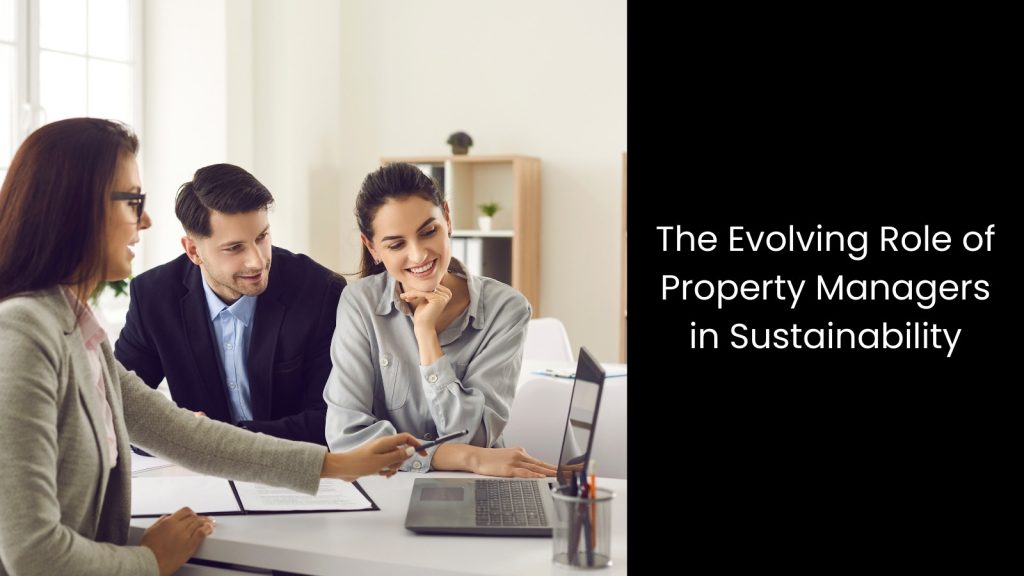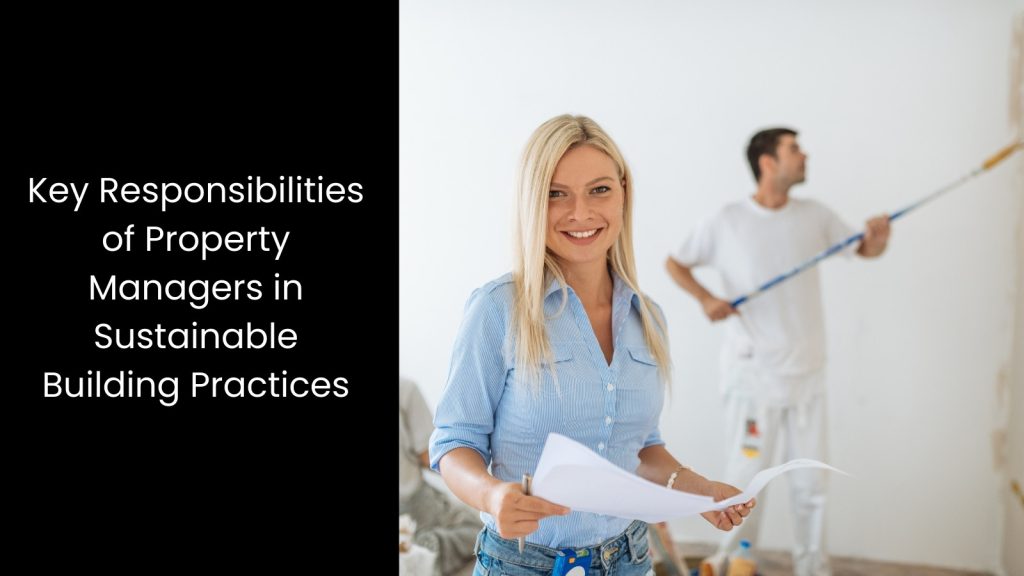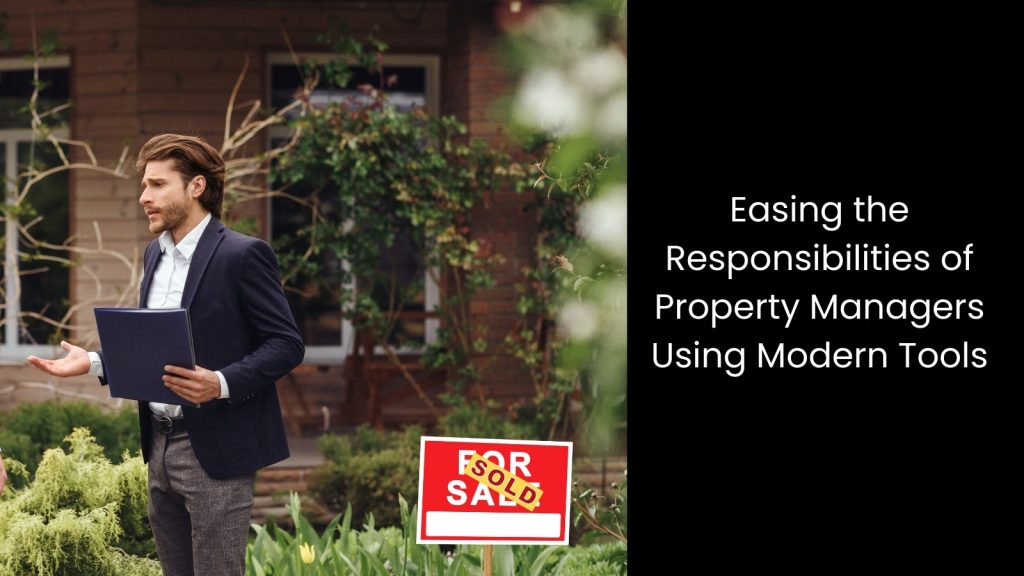Who says property managers only fix pipes and manage tenants? No, they have a giant role to play in today’s real estate world. They hold the key to creating sustainable, eco-conscious buildings, which is the latest requirement and the trend in this specific field. Property managers are now leading the charge in green building practices, pushing for energy-efficient solutions and waste-reducing strategies. Do not ever consider sustainability as a simple term; it is a must-have in modern property management. The impact property managers have on environmental practices is far-reaching and more important than ever.
Let us dive deeper into the role of property managers in sustainability building practices.
We will look into
The Evolving Role of Property Managers in Sustainability

- The whole world is walking towards sustainability, and property managers are stepping up to shape greener living and working spaces.
- Sustainable building practices are a mechanism which involves designing, maintaining, and operating properties in ways that cut energy use, reduce waste, and lower environmental impact. This approach includes energy-efficient lighting, water-saving fixtures, eco-friendly materials, and smart building technology.
- The problem with traditional property management was that it focused mostly on rent collection, maintenance, tenant relations and so on. When the enthusiasm towards the environment expanded, these things have been changed. Now, property managers act as sustainability advocates, pushing for green upgrades, tracking energy performance, and working with landlords to install solar panels, improve insulation, and implement waste reduction programmes.
- Governments are tightening environmental regulations, and tenants expect eco-friendly spaces, so property managers must adapt fast. Many properties now integrate smart sensors to monitor energy consumption and detect inefficiencies, making real-time adjustments to save resources. Partnering with sustainable suppliers, enforcing green lease agreements, and promoting recycling programmes have also become everyday responsibilities.
- So yes, property managers no longer just maintain buildings; they create healthier environments that attract eco-conscious tenants and boost long-term property value now.
Key Responsibilities of Property Managers in Sustainable Building Practices

Encouraging Energy Efficiency & Renewable Energy
Energy is one element that property managers must control to keep buildings sustainable, cost-effective, and attractive to eco-conscious tenants. Running a property with outdated systems wastes energy, drives up costs, and increases carbon emissions, so switching to smart energy solutions makes sense.
Let us explain how this works.
Installing automation systems allows buildings to adjust lighting, heating, and cooling based on real-time usage, preventing unnecessary energy consumption. Motion sensors and LED lighting cut electricity use, while programmable thermostats help regulate indoor temperatures without wasting power.
Property managers also push for renewable energy by advocating for solar panels and wind energy, showing landlords how these investments lower electricity bills and increase long-term property value. Many cities around the world now offer incentives for renewable installations, making the shift more affordable. Managing HVAC systems properly also plays a huge role in reducing the carbon footprint of a building.
Regular maintenance, high-efficiency filters, and smart ventilation systems improve air quality while cutting energy waste. Encouraging tenants to adopt energy-saving habits, such as switching off unused devices and using energy-efficient appliances, adds another layer of sustainability. With all these responsibilities, a property manager’s role has been expanded at lightning speed.
Promoting Water Conservation Strategies
This is a topic that many real estate managers cannot ignore, as water conservation has become a huge part of sustainable practices.
Managing a property means keeping water use efficient, reducing wastage, and ensuring long-term savings for both tenants and owners. Upgrading to water-efficient appliances, such as low-flow faucets, dual-flush toilets, and high-efficiency washing machines, cuts down water usage without affecting daily comfort.
Property managers also introduce smart irrigation systems that adjust watering schedules based on weather conditions, preventing unnecessary water loss. Another big move is setting up rainwater harvesting systems, which collect and store rainwater for landscape irrigation and toilet flushing, reducing reliance on the main water supply.
This is where greywater recycling adds another layer of sustainability by repurposing gently used water from sinks and showers for non-drinking purposes, cutting down overall consumption. Monitoring water usage across properties with smart meters helps detect leaks early, stopping unnecessary waste before it turns into a massive problem. Encouraging tenants to use water responsibly through education programmes and visible reminders reinforces these efforts.
Facilitating Waste Management & Recycling Strategies
One of the most valuable ways property managers shape sustainable practices is through smart waste management and recycling strategies. Every building produces waste, but handling it responsibly makes a massive difference in reducing environmental impact.
Encouraging waste segregation helps tenants sort recyclables, organic waste, and general trash correctly, keeping landfills from overflowing with materials that could be reused. Setting up clear recycling stations in common areas and providing easy-to-follow guidelines makes participation simple.
Property managers also work with waste management services to ensure proper disposal methods, choosing providers that focus on recycling, composting, and eco-friendly waste processing instead of sending everything to dumpsites. Large properties and commercial buildings generate renovation and construction waste, so reducing this impact requires creative solutions.
Upcycling materials, like repurposing old wood for furniture or reusing bricks for landscaping, cuts down unnecessary waste while adding a unique touch to properties. Working with contractors who prioritise sustainable demolition and recycling salvaged materials turns renovations into greener projects.
Educating tenants and staff about responsible waste disposal strengthens these efforts, making sustainability a shared responsibility.
This way, property managers have to lead the way in creating cleaner, smarter spaces where waste is minimised and resources are reused properly.
Use of Sustainable Landscaping & Green Spaces
It is indeed a tricky part of property management to balance aesthetics with sustainability. However, smart landscaping choices make it possible to create beautiful, eco-friendly spaces without draining resources.
Native plants and drought-resistant landscaping reduce water consumption, thrive in local climates, and require less maintenance. The latter makes them a perfect choice for sustainable practices. Instead of planting thirsty grass lawns, property managers now have to introduce hardy shrubs, ground covers, and trees that support biodiversity while cutting down irrigation needs.
Beyond just greenery, creating community green spaces transforms properties into healthier, more livable environments. Parks, rooftop gardens, and courtyards filled with native vegetation not only improve air quality but also provide a habitat for urban wildlife like birds and pollinators.
Composting programmes take sustainability even further by turning organic waste into nutrient-rich soil, reducing landfill contributions while keeping gardens lush. Encouraging tenants to participate in composting and community gardening strengthens environmental awareness, making sustainability a shared effort.
It is evident that managing properties now means more than just mowing lawns!
Sustainable Procurement and Vendor Management
When property managers have to choose service providers, contractors, and suppliers, their decisions shape the sustainability of an entire building. Every product and service that enters a property impacts energy use, waste generation, and environmental footprint.
This is where choosing vendors that follow sustainable practices ensures that maintenance work, renovations, and daily operations align with eco-friendly goals. As you can see, property managers actively seek suppliers who provide energy-efficient appliances, non-toxic cleaning products, and responsibly sourced building materials.
Working with contractors who give value to waste reduction, low-emission transportation, and sustainable construction techniques further strengthens green initiatives. Even simple choices, like partnering with waste management companies that focus on recycling or landscaping teams that use organic fertilisers, make a huge difference.
Regularly reviewing vendor policies ensures an ongoing commitment to sustainability, pushing suppliers to adopt greener methods instead of sticking to outdated, wasteful practices. Negotiating contracts with sustainability clauses ensures that vendors stick to environmental guidelines, keeping properties aligned with long-term eco-friendly goals.
This means your property manager can actively shape how buildings operate through responsible procurement.
Promoting Sustainable Tenant Behaviour
As much as property managers commit to sustainable practices, tenants play a huge role in making green initiatives work.
Buildings do not become eco-friendly just because they have energy-efficient systems or water-saving features. Residents need to use them the right way.
Educating tenants on green living habits, like reducing water waste, sorting recyclables properly, and using energy wisely, turns sustainability into a shared responsibility. Simple reminders about switching off unused lights or choosing reusable over disposable items make a bigger impact than most people realise.
To keep tenants engaged, property managers can introduce rewards for sustainable actions, such as discounts on rent for reducing energy consumption or community perks for participating in recycling programmes. Turning green behaviour into something rewarding increases participation and builds an environmentally conscious community. Beyond that, developing eco-friendly lease agreements ensures sustainability remains a long-term priority.
Including clauses about waste management, responsible water use, and energy-saving commitments holds tenants accountable while making sustainable living the standard, not just an option. Encouraging sustainable tenant behaviour is not about forcing change; it is about making sustainability easy, appealing, and beneficial for everyone.
When residents actively support green initiatives, properties become more efficient in every way.
Easing the Responsibilities of Property Managers Using Modern Tools

When it comes to implementing sustainability practices or any usual work, property managers face growing challenges. This is where modern tools like Property Management Systems can simplify their day-to-day responsibilities. With property management software, they can automate every sort of routine task, improve communication, and stay on top of every detail. With modern tools purchased from an industry expert, you can keep property management worries at bay.

